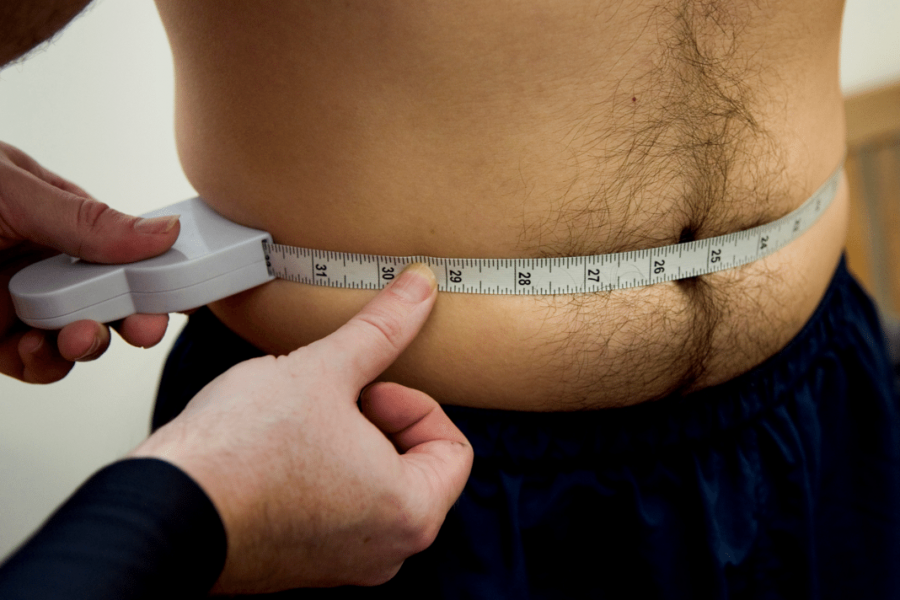Two-thirds of Americans are overweight or obese. Many of them may wish to lose weight to become healthier and happier, but an article by Gina Kolata of The New York Times (2016) suggests that losing massive amounts of weight in short periods of time is near impossible to maintain and is actually more harmful to your body than keeping on the weight.
There is a multitude of weight loss products that include diet changes, pills and intense exercise routines. Sadly, despite the efforts of many individuals, statistics show that over time 95 percent regain the weight they lose.
One of the most popular and successful programs for weight loss is the TV show “Biggest Loser.” This program incorporates the established weight-loss methods of healthy eating, exercise, competition, behavior change counseling and support.
Although, after the confetti went off and the winners of the show were announced, Kevin Hall, a scientist and expert on metabolism, and several other scientists and doctors, decided to follow some the victors of the show as they continued through their lives out of the spotlight.
The results of various tests and data gathered over the course of their observations shocked Dr. Hall and fellow researchers. At the beginning of season 8, Danny Cahill, the winner, weighed 430 pounds. By the finale, he had reached an outstanding 191 pounds. Today, 6 years later, he has gained about 100 pounds back despite his efforts to keep the weight off. He now weighs 295 and burns 800 fewer calories a day than would be expected for a man his size.
Dina Mercado, another contestant, weighed 248 pounds at the beginning of the show. At the finale, she had reached 173.5 pounds. 6 years later she weighs 205.9 pounds and her metabolic rate is 437.9 fewer calories per day than would be expected.
“It is frightening and amazing,” said Dr. Hall. “I am just blown away.”
Dr. Hall’s shock has to do with resting metabolism, which determines how many calories an individual burns when they’re not being active. Although the contestants of the show were highly overweight, they had normal metabolism rates for their sizes, burning normal amounts of calories given their weights. When the show ended, however, and contestants found themselves hundreds of pounds lighter, their metabolisms had slowed and their bodies were not burning enough calories to maintain their thinner sizes. And as time went on those metabolisms never recovered.
Dr. David Ludwig, director of the New Balance Foundation Obesity Prevention Center at Boston Children’s Hospital, commented that the findings of this study show the need for new approaches to weight control.
“This is a subset of the most successful dieters,” he said. “If they don’t show a return to normal in metabolism, what hope is there for the rest of us?” This is a great concern for the rest of us, indeed. Biologically, our bodies fight back when losing weight, whether that be 150 pounds or 15 pounds, and this research has left America to wonder if losing weight is even worth the effort to try to be healthy. That’s a fair consideration. But Dr. Ludwig added that this research “… shouldn’t be interpreted to mean we are doomed to battle our biology or remain fat. It means we need to explore other approaches.”
“There is a lot of basic research we still need to do,” said Dr. Margaret Jackson. She is currently directing a project that tests a drug that acts like leptin, a hormone that controls hunger. When this hormone falls, people become hungry, and it’s possible that if we can manipulate that hormone we can better control peoples’ dietary actions. She is one of many working to aid in overcoming obesity and related health issues.
More research still needs to be done on this topic, but thanks to the contestants of the “Biggest Loser” and dedicated scientists and researchers, progress is being made. That doesn’t mean that those who are currently battling obesity should give up on healthier lifestyles. Researchers and scientists certainly have plenty to learn and overcome, but that’s no reason to continue living a life that makes you unhealthy or threatens your quality of life. There’s still room to take charge of your own dietary outcomes while others work to help you.
@TheChrony


